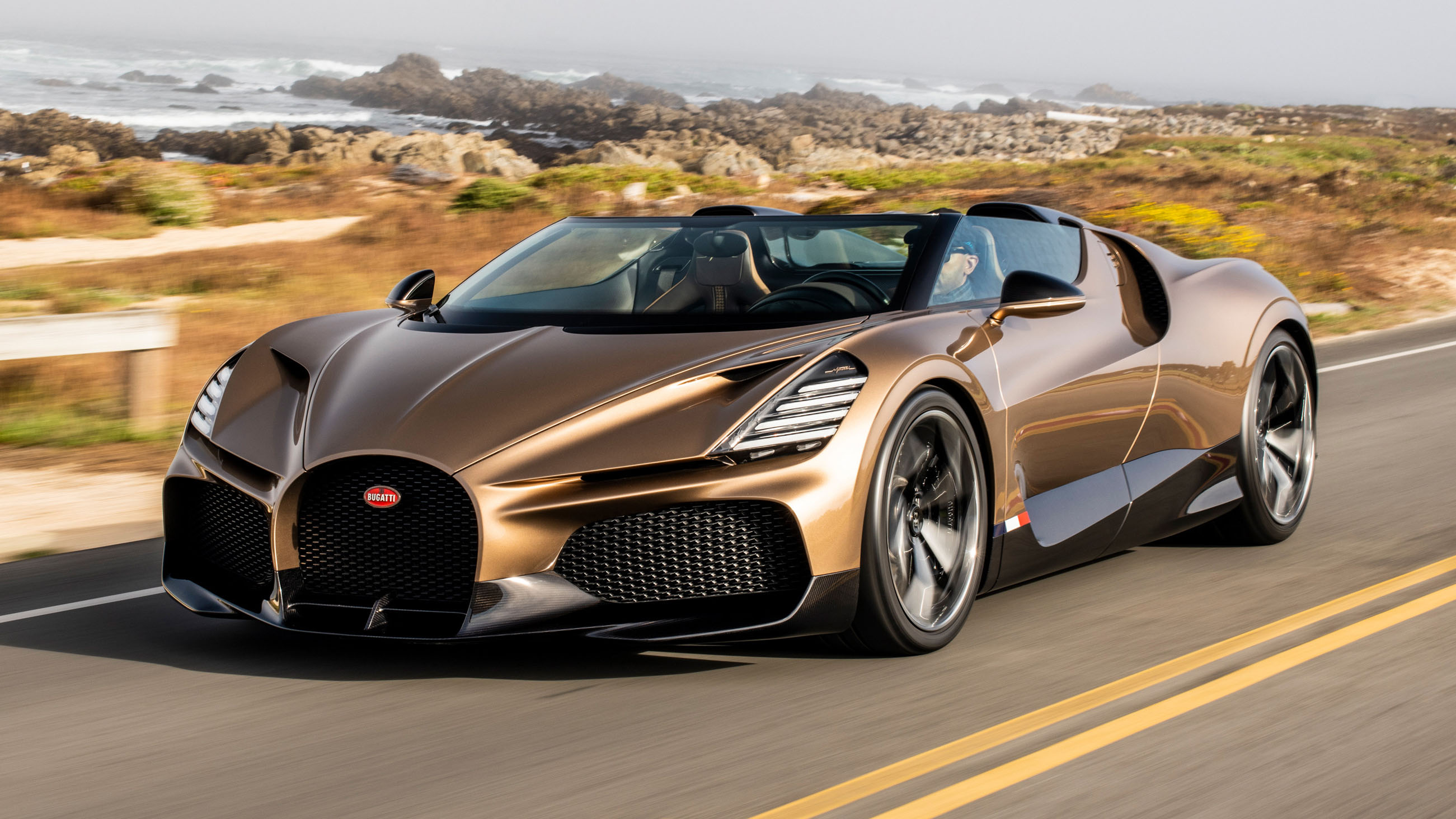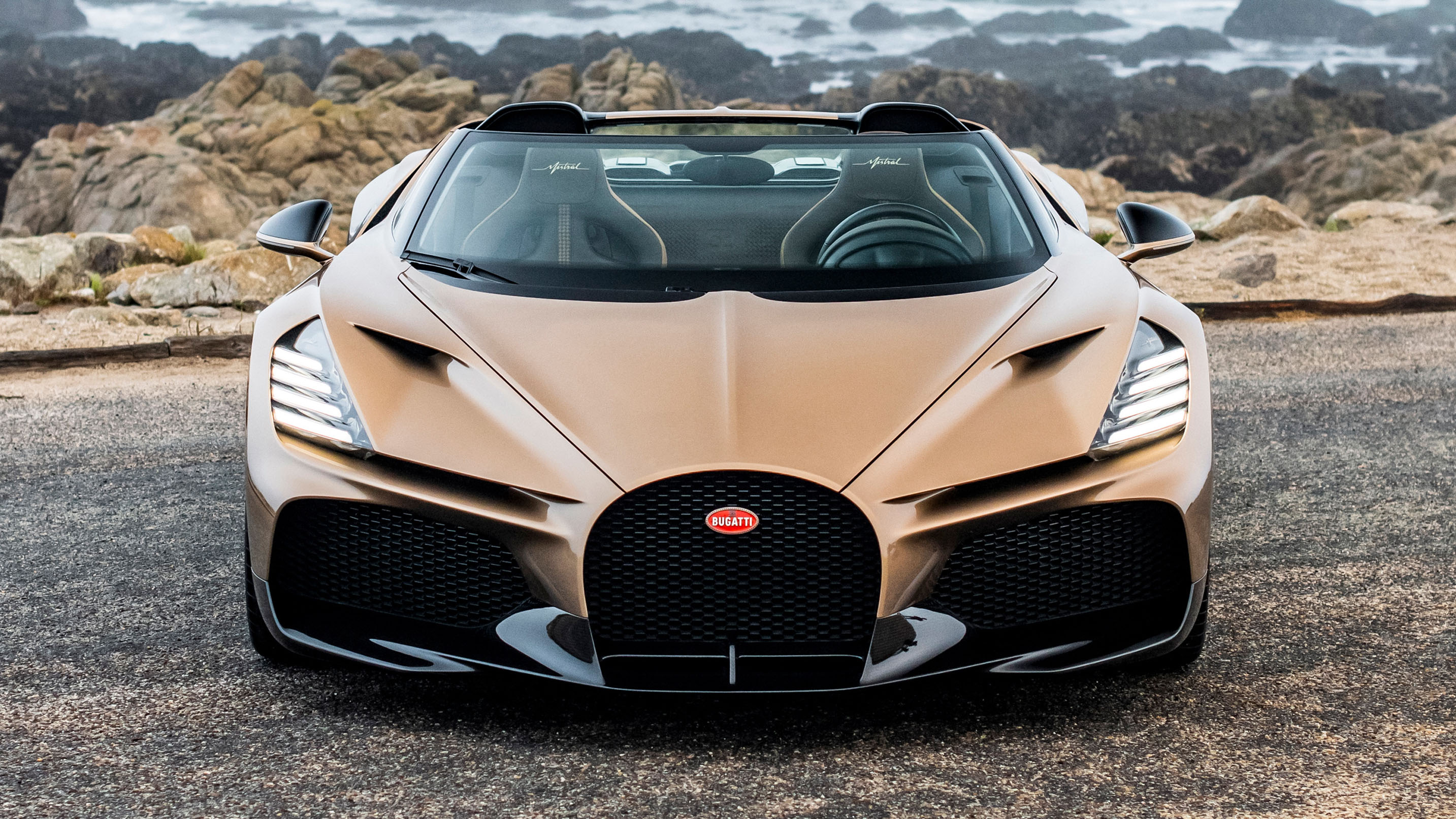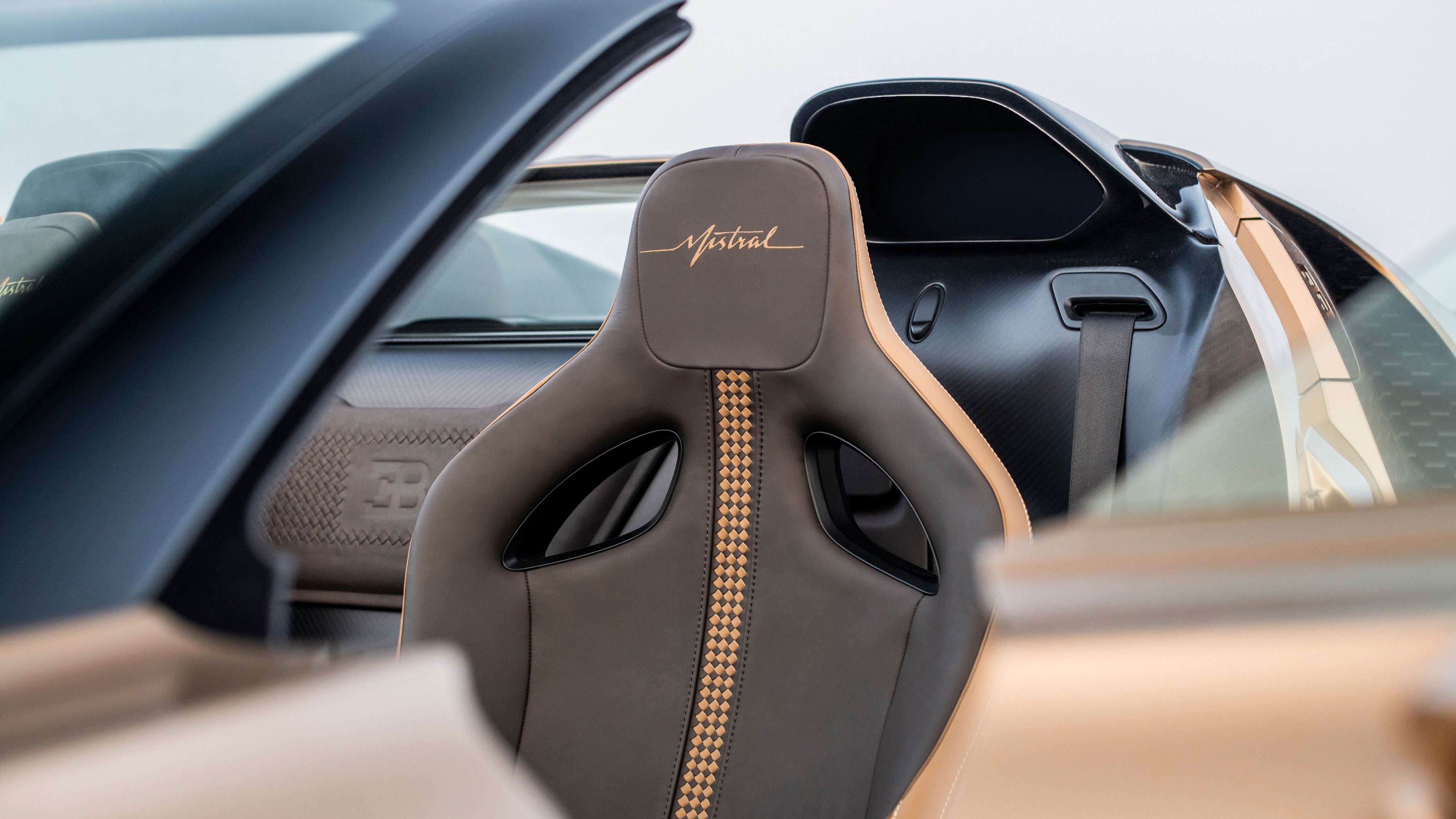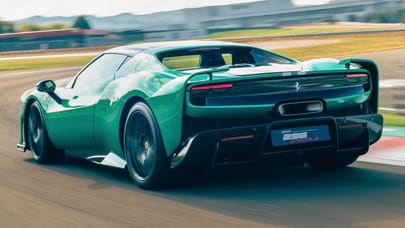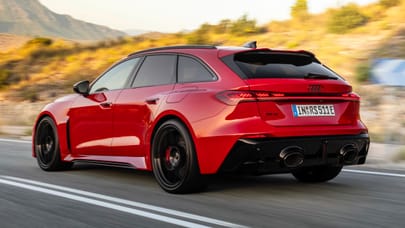
Gawp at these new pics of the W16 Mistral, Bugatti’s last W16-engined hypercar
Bugatti explains how it built the stunning Mistral roadster, time to stop and stare
The rest of the world may be putting a leash on its designers, and simmering down their crazy concepts to be relatively tame when they do make production, but Bugatti does things differently. Welcome to the latest set of images for its forthcoming W16 Mistral hypercar, folks. And yes, our jaws still need lifting from the floor too.
It’s Bugatti’s first roadster since the Veyron Grand Sport Vitesse back in 2012 and will be the French marque’s last-ever purely ICE-powered thoroughbred. Unless a really rich person comes along and asks for a one-off. And then their friend asks for another. But that’ll really, truly be the last-ever one. Maybe.
At its heart will sit the final rendition of Bugatti’s legendary W16 power plant, but woven around it is a completely redefined monocoque, leading to a noticeably more chiselled shape than before.
Emilio Scervo, chief technology officer at Bugatti, said: “The Chiron family was never intended to have a roadster model. That is why we had to start afresh when we decided to build the W16 Mistral, the ultimate tribute to our rich roadster history and our legendary W16 engine.”
Perhaps the most incredible thing about Mistral is that, despite the space-age aesthetics, it still retains the Bugatti ethos. That means big speed. “One of the primary challenges was to meet the goal of creating a roadster that has a top speed of 260mph and mixing this performance-defining quality with an experience in the cabin that is luxurious, refined and assured,” continued Scervo.
So, how has it been done? Bugatti’s boffins started by making sure most of the bolts and frames were as rigid but lightweight as possible, which is furthered by the use of composite materials.
They then added a few bespoke touches to the Mistral - like a new advanced air intake, and carbon fibre ram induction scoops behind the headrests - to keep the body shape as fluid as possible when travelling at or close to Vmax. Unfortunately, these changes probably do little for you if/when a swarm of mosquitos hits you at that speed. Still, you’ll look pretty fly when it happens. Sorry, that was terrible.
As the Mistral enters its production phase, it does so as the vehicle which brings the curtains down on a lineage of two-seat, open-top, ICE-powered Bugatti roadsters that stretches back to the mid-twentieth century, with vehicles like the Type 40 A and Type 55 Roadster. But as special as they are, we doubt the top hats of their respective eras would’ve gawped at it the way the snapbacks of today will at the Mistral. That speaks volumes about its design.
Top Gear
Newsletter
Thank you for subscribing to our newsletter. Look out for your regular round-up of news, reviews and offers in your inbox.
Get all the latest news, reviews and exclusives, direct to your inbox.
Trending this week
- Top Gear Advice
Here are 19 brilliant cars that are cheaper than you think




